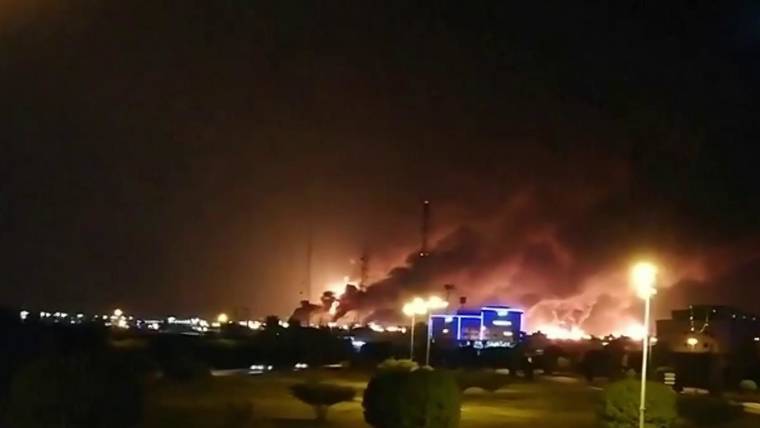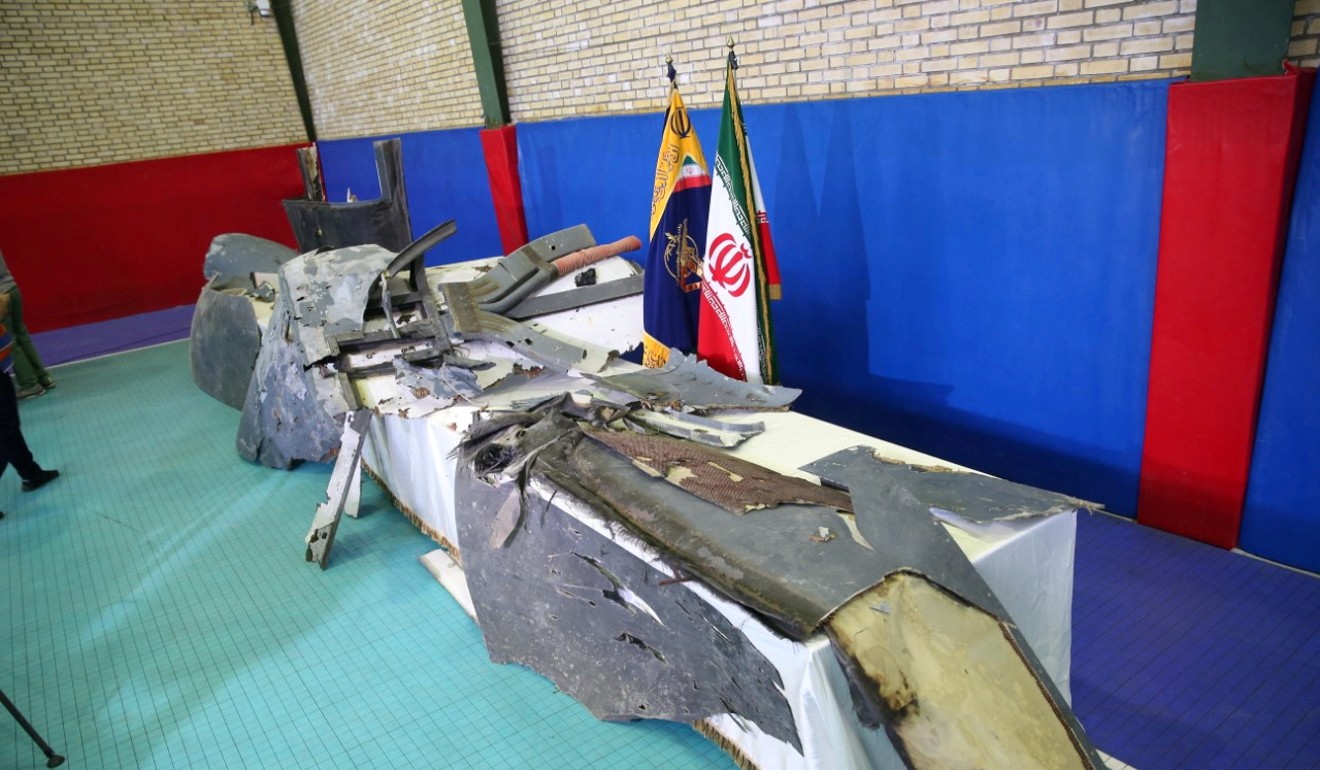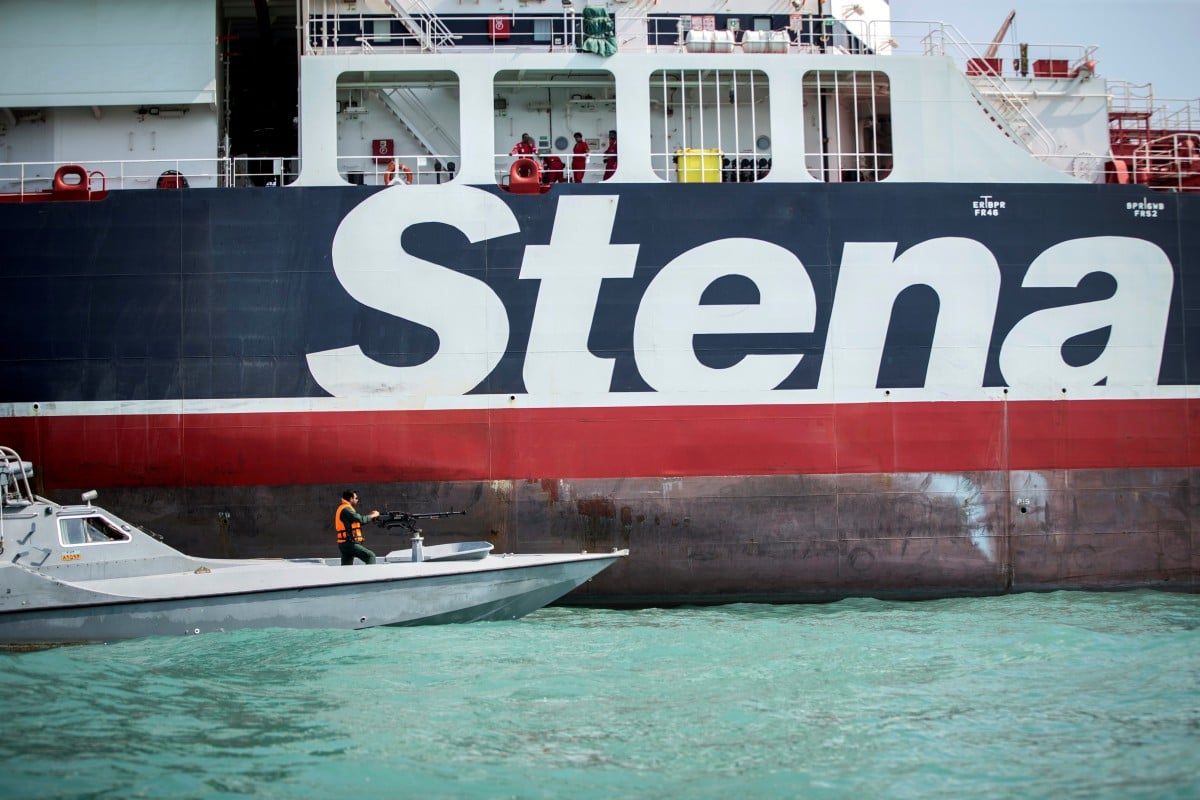Locked and Loaded?
"The president talked about our use of those [cyber weapons] previously, but I'm certainly not going to forecast what we'll do as we move forward."
"This was Iran through and through [from drone downing to missile strikes on two Saudi oil facilities], and the United States will respond in a way that reflects that act of war by this Iranian revolutionary regime."
U.S. Secretary of State Mike Pompeo
 |
| U.S. Intel: Saudi oil field attacks originated from Iran |
"Cyber can certainly be a deterrent, it can be a very powerful weapon."
"It is an option that can cause real damage."
Senator Angus King, Maine, Chairman, Cyberspace Solarium Commission
 |
| Visitors gather at Tehran's Islamic Revolution and Holy Defense museum during the unveiling of an exhibition of what Iran says are U.S. and other drones captured in its territory, in the capital Tehran on Sept. 21, 2019. ATTA KENARE/AFP/Getty Images |
"To the extent that Iran is conducting unlawful operations, I think [the cyber strike] was an appropriate measure to take to preclude their ability to conduct further unlawful operations."
"Sometimes cyberspace allows you to take operations that are not as escalatory as other options on the table. And this would strike me as one such operation."
Michael Schmitt, international law professor, US Naval War College
 |
| The purported wreckage of the destroyed US drone. File photo: Reuters |
"Clearly those who conducted this attack were not deterred. That means inflicting pain."
"But we want that pain to be inflicted in a wise way that does not increase the credibility in the eyes of the Iranian people of a regime that is not credible."
Bradley Bowman, senior director, Foundation for Defense of Democracies
From piracy in the Strait of Hormuz to prove to the world that the Islamic Republic of Iran through the expert terrorism credentials of its Islamic Revolutionary Guard Corps, can give as good as it gets when one of its oil tankers was taken into custody in the belief that it was headed to unload its cargo in Syria where EU sanction against such traffic was being enforced at Gibraltar, to the downing of a sophisticated American surveillance drone which Iran claimed had overflown its territorial air space, the Republic has gone out of its way to prod, goad, provoke its Gulf neighbours and their ally, the United States of America.
 |
| Speedboat of the Iran’s Revolutionary Guard moves around a British-flagged oil tanker, Stena Impero, in the Iranian port of Bandar Abbas two days after it was seized in the Strait of Hormuz by the Guard on Friday, July 19. File photo: Reuters |
U.S. President Donald Trump has warned Iran that the United States is 'locked and loaded', should it indulge in any further violent expressions of contempt for its adversaries, even while it reacts increasingly recklessly in its frustration over the strict sanctions most latterly imposed on the oil-rich but distribution-and-sales-poor nation aspiring to expand its authority and command in the Middle East and beyond. Iran's use of coercion and threat followed by violence it claims has nothing to do with it is a strategy that has worked for it up to the present.
The American president exercised restraint after the destruction of the U.S. drone, preferring, it seems, to bide his time rather than risk an all-out war on a country that continues to agitate for war even while it claims it seeks peace and to make certain that foreign elements stay well away from its territory. This, even while it sends its proxy terrorist groups abroad to indulge in destabilizing violence meant to further Iran's territorial and conquest interests. That big stick Washington carries is withdrawn in exchange for blasting rhetoric mimicking Tehran's.
Ah, and then there is the U.S. Cyber Command, the world's purported most potent arsenal of cyber weapons that cyber professionals are preparing to implant in enemy networks. Tougher sanctions have only made the Islamist Shia tiger gnash its teeth in rage and fulminate over violent attacks on its Sunni neighbours delivered mostly via proxies, if not by the IRGC. The original Stuxnet cyberattack meant to disable Iran's centrifuges enriching uranium to bomb-grade succeeded in setting the Iranian nuclear program back temporarily.
A number of following cyberstrike launched by the U.S. and another three months ago which the Pentagon claims would be disabling to the Republic, which is not yet aware of it -- which makes the uninitiated wonder just how powerful and useful such a cyberattack could be if its results have not yet been detected by the target -- is being considered the beginning of a series, the next of which is now being considered to wreak as much damage to the country's cybernetworks as possible; presumably in a manner that would be catastrophic and not readily given to repair.
Trump, it seems, is unwilling to widen the conflict into a potential war footing, given his promise that the U.S. would be leaving the region. But a strike to significantly damage Iran's oilfields just as it has done to Saudi Arabia, and put its refineries out of immediate business is being considered for its "proportionate response" value. The administration is not, however, convinced that a cyberattack alone would be sufficient to convince calculating Iran that its ongoing belligerence is not paying off.
The mission is meant to convince Iran that it should set aside its ambitions for nuclear and missile programs. To punish the theocratic executive powers sufficiently so as to move them toward the kind of self-preservation that would convince them to step back from their regional destructiveness, much less its dedicated support and direction of terrorist groups acting at its behest, from Shiite militias, to Hezbollah, to Hamas.
Restraining themselves from overt military action in favour of reliance on cyberwarfare may not, however, be the answer to the dilemma, as pointed out by General Paul Nakasone, commander of U.S. Cyber Command, and the director of the National Security Agency who has warned the president and his aides that the nation's cyber arsenal represents "no magic bullet" for Iranian aggression deterrence.
So, back to the drawing board. Perhaps. Perhaps not. The big question is how far is Iran willing to push and shove the U.S. into a responsive 'proportionate' military reaction?
/arc-anglerfish-arc2-prod-mco.s3.amazonaws.com/public/Z56V474PORH6PLLUSH2EFQEZGI.jpg) |
Air and missile defense units are at the top of the list for a deployment in support of Saudi Arabia, following an Iranian attack on oil fields there. (Capt. Rachael Jeffcoat/Army) |
Labels: Crisis Management, Iran, IRGC, Military Option, Political Realities, Provocation, United States Cyber Command, Washington
0 Comments:
Post a Comment
<< Home